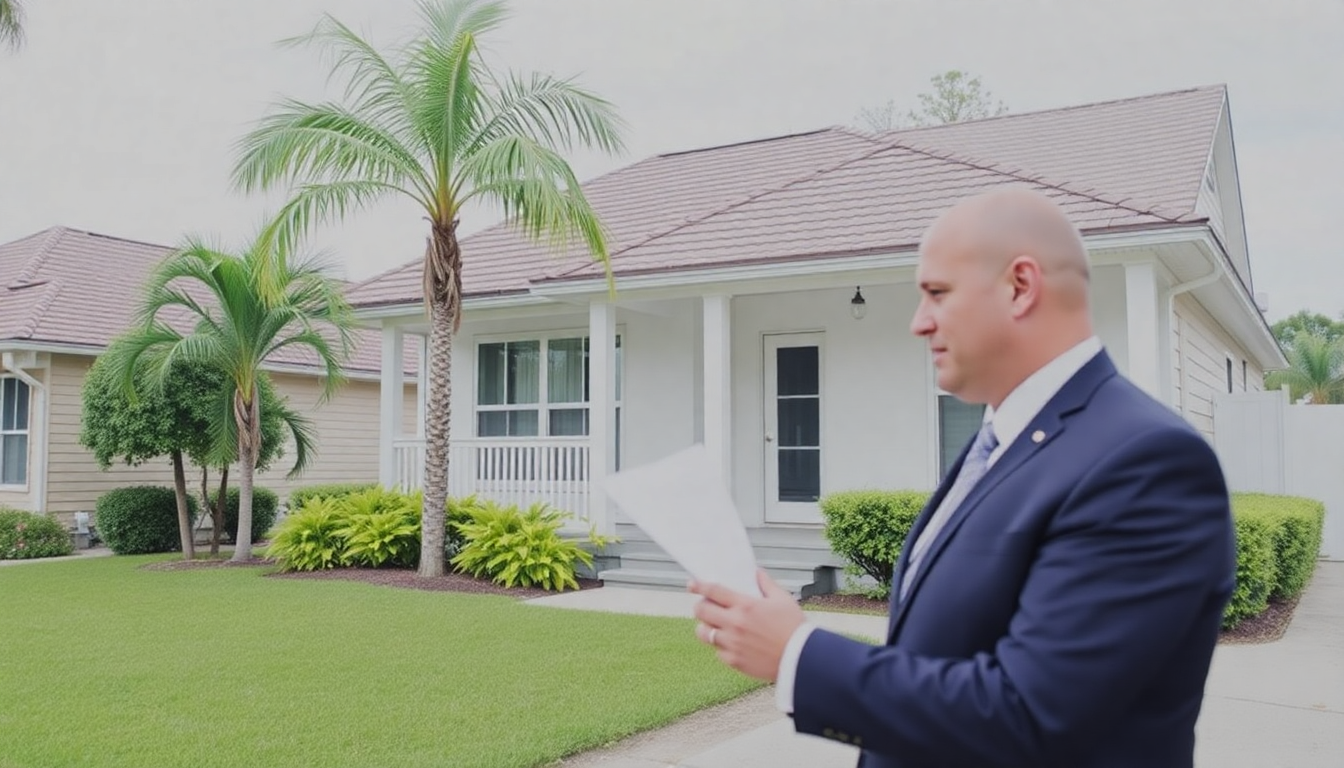What Is the Florida Homestead Exemption?
If you own a home or plan to buy in Florida, understanding the Florida Homestead Exemption can save you thousands over the life of your mortgage. LBC Capital helps Florida homeowners navigate the Homestead Exemption to maximize savings and reduce monthly payments. Here’s how this benefit works and how it can impact your mortgage costs.
The Florida Homestead Exemption is a property tax benefit that reduces the assessed value of your primary residence. This results in lower property taxes, which can reduce your monthly mortgage payments if you escrow for taxes. The exemption is written into the Florida Constitution and provides financial relief and legal protections for homeowners.
How Much Can You Save?
Homeowners can receive up to $50,000 in exemptions. The first $25,000 applies to all property taxes, including school district taxes. The second $25,000 applies only to non-school taxes and only if your assessed value is more than $50,000. These savings directly reduce your property tax bill, which lowers the escrow portion of your monthly mortgage payment.
Legal Protections
In addition to tax benefits, the Homestead Exemption offers strong creditor protection. Your primary residence is protected from forced sale by most creditors under Florida law. This legal safeguard provides peace of mind and long-term financial stability.
Eligibility Requirements for the Homestead Exemption
To qualify for the Florida Homestead Exemption, you must:
- Own the property as of January 1 of the year you apply
- Make the property your permanent residence
- File an application with the local property appraiser by March 1
You must also be a U.S. citizen or permanent resident and not claim a homestead exemption in another state.
Filing the Application
The application process is straightforward. Most counties allow online submission of the required form, DR-501. You’ll need to submit proof of residency, such as a Florida driver’s license, voter registration, and utility bills. Once approved, the exemption automatically renews each year unless your status changes.
Save Our Homes Cap and Portability
One of the most valuable features of the Homestead Exemption is the Save Our Homes (SOH) cap. This law limits the annual increase in your home’s assessed value to a maximum of 3% or the rate of inflation, whichever is lower. This cap helps protect you from steep property tax increases in a rapidly appreciating market.
Portability of the SOH Benefit
If you move within Florida, you can transfer the SOH benefit to your new primary residence. This process is known as portability. You must file a separate application (Form DR-501T) to port your benefit within three years of selling your previous home. LBC Capital works with homeowners to ensure they take full advantage of portability, preserving tax savings even after moving.
How the Homestead Exemption Affects Mortgage Costs
Lower Escrow Payments
Your mortgage payment typically includes principal, interest, property taxes, and homeowners insurance. Because property taxes are paid through an escrow account, a lower tax bill means your lender collects less each month. This reduction is directly tied to the Homestead Exemption.
Annual Escrow Recalculations
Mortgage lenders review your escrow account annually. If your property taxes decrease due to the Homestead Exemption, your lender will adjust your monthly mortgage payment accordingly. You may also receive a refund if the escrow account was overfunded.
Increased Monthly Cash Flow
By lowering your tax burden, the exemption gives you more monthly cash flow. You can use those savings to pay down principal faster, invest elsewhere, or cover other household expenses. LBC Capital helps clients understand these impacts when reviewing mortgage options.
Important Deadlines and Timing
January 1 Occupancy Requirement
You must occupy the home as your permanent residence by January 1 to be eligible for that year’s exemption. If you close after this date, you won’t qualify until the following year.
March 1 Filing Deadline
The application must be submitted by March 1. Late filings are not accepted unless you qualify for a very limited exception. Missing this deadline could mean missing out on hundreds or even thousands of dollars in tax savings.
Risks of Losing the Exemption
Failing to maintain eligibility can result in the loss of the Homestead Exemption. This includes renting the home long-term, moving out permanently, or claiming an exemption elsewhere. If an audit reveals ineligibility, the property appraiser can assess back taxes, penalties, and interest. LBC Capital advises clients on how to maintain compliance and avoid costly mistakes.
Legislative Updates and the Future of the Exemption
In recent years, Florida voters passed Amendment 5, which extended the portability period for the SOH benefit from two years to three. This gives homeowners more flexibility when moving and selling their homes. Future legislative updates may further enhance the benefits or adjust eligibility, so it’s important to stay informed.
LBC Capital stays up to date on legislative changes and ensures our clients always get the most accurate advice and up-to-date strategies.
Why Choose LBC Capital?
LBC Capital combines mortgage expertise with deep knowledge of Florida property tax law. We help you structure your loan to fully benefit from the Homestead Exemption. Our team ensures you don’t miss important deadlines and that your escrow is calculated correctly based on current exemptions.
Whether you’re buying your first home or refinancing, LBC Capital provides personalized mortgage solutions that maximize savings. We guide you through the Homestead Exemption process, from application to long-term planning. When you work with LBC Capital, you’re not just getting a loan—you’re getting a smarter way to own a home in Florida.
